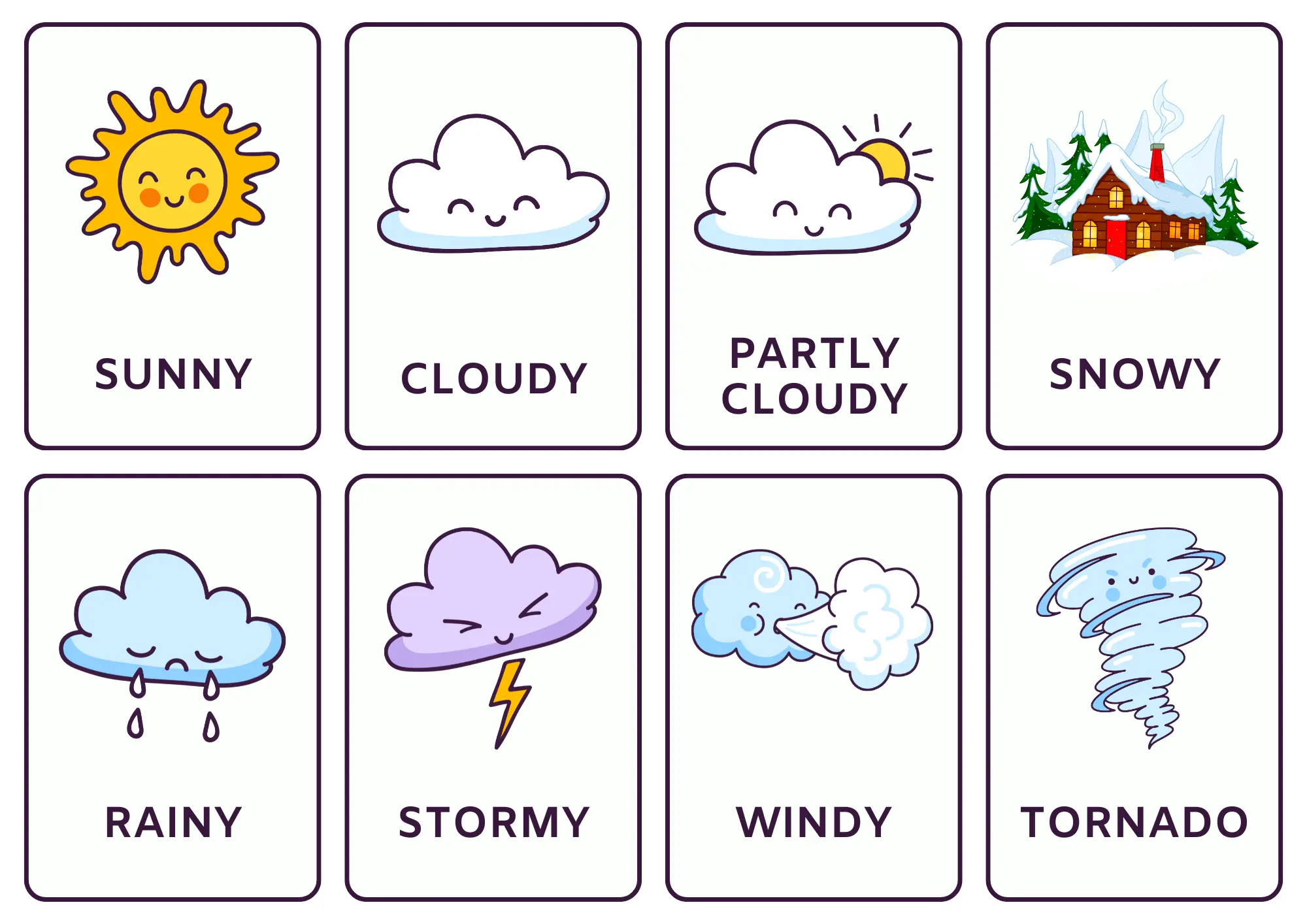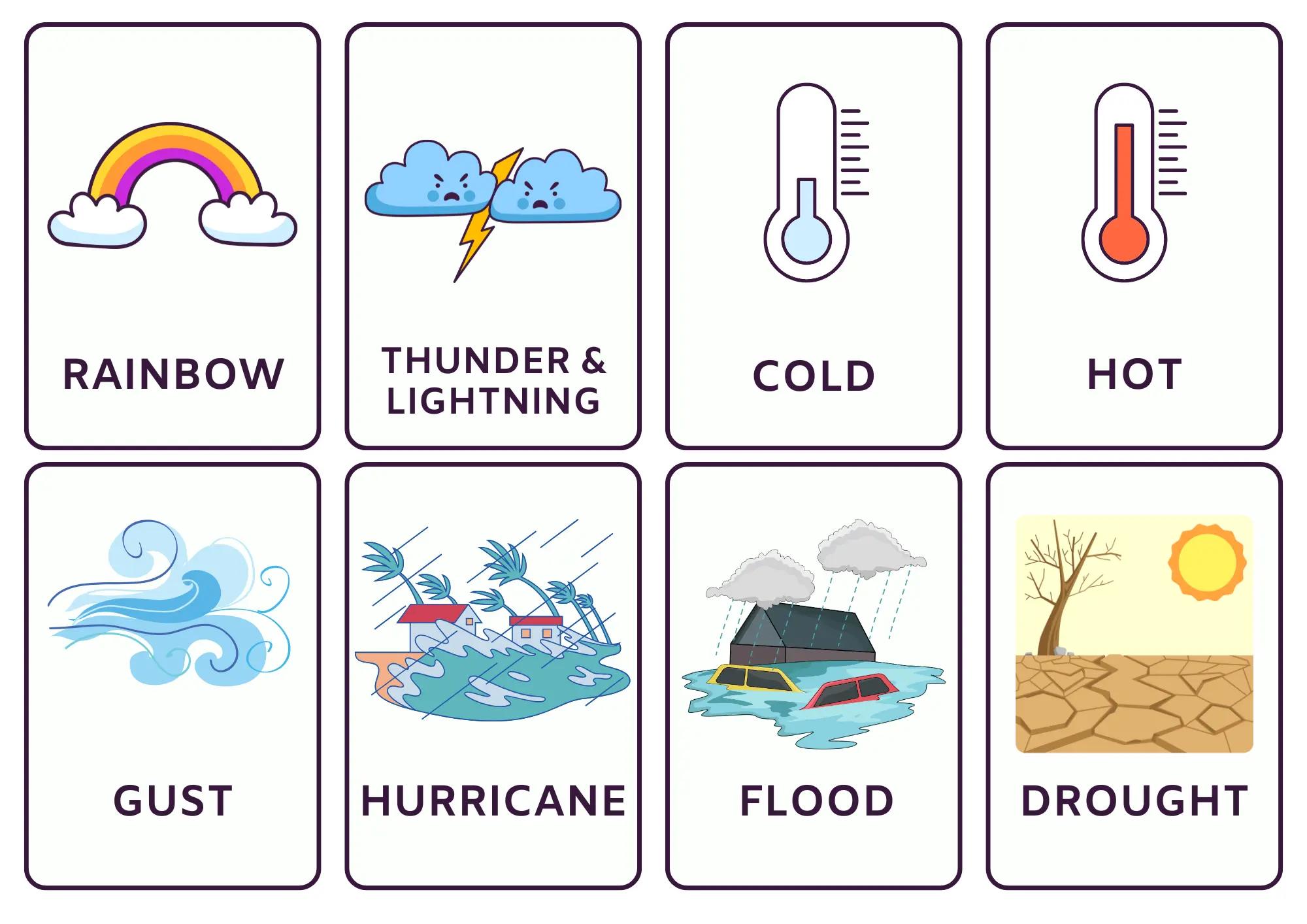In this weather vocabulary lesson, you’ll learn useful words and phrases to describe different conditions of the day in everyday conversations. I have created weather flashcards to help you memorise them easily.
1. What is the weather?
The weather is the state of the atmosphere over a short period of time. Many meteorological parameters are used to describe it. These include temperature, wind speed, wind direction, humidity, precipitation, and atmospheric pressure.
2. How to ask about the weather?
- What's the weather like?
- What's the weather like today / tomorrow?
- What's the forecast for tomorrow?
- Do you know if it’s going to rain later?
- Is the weather going to be nice this weekend?
- What's the weather like in London?
3. What to say when people ask about the weather?
We use the It’s + adjective structure to talk about the weather in English. This can be used to describe how the weather feels and answer the questions mentioned in the previous section.
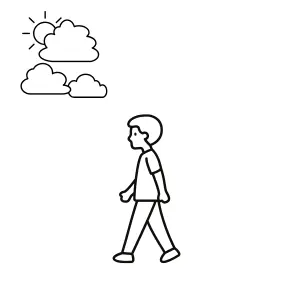
It's partly cloudy.
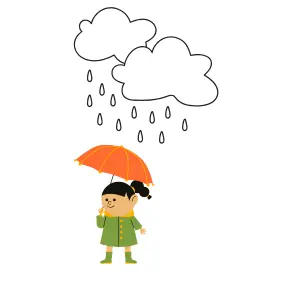
It's rainy.
Do you know the difference between a hurricane, cyclone, and typhoon? Well, they all mean the same thing. They all refer to a violent tropical storm, but the name used depends on where the storm occurs.
In the North Atlantic and the central and eastern North Pacific, these storms are called hurricanes. In the Northwest Pacific, they are known as typhoons. In the South Pacific and Indian Ocean regions, they are called cyclones.
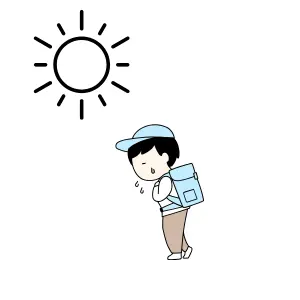
It's sunny.
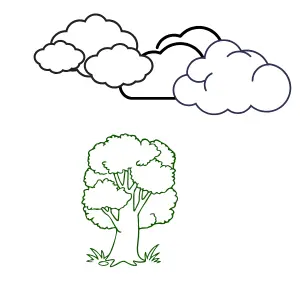
It's cloudy.
A very strong wind is called a gale.
1. A sudden gale blew my hat away.
2. Our tent collapsed in the gales last night.
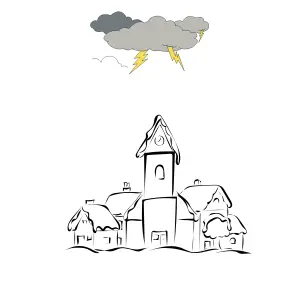
It's stormy.
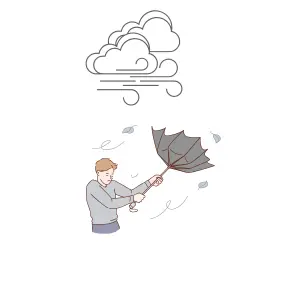
It's windy.
A thunderstorm is a storm with rain, thunder, and lightning (⚡️).
1. We had to find shelter to wait for the thunderstorm to stop.
2. Where did you shelter during the thunderstorm?

It's hot.
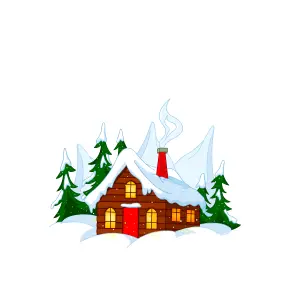
It's snowy.
A blizzard is a heavy fall of snow accompanied by strong wind, causing low visibility.
1. It was difficult to see the road ahead because of the blizzard.
2. I was stuck in a blizzard for two hours.
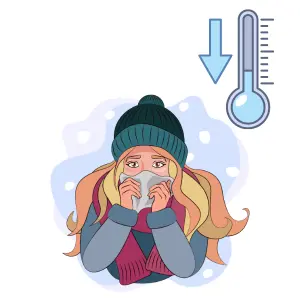
It's cold.
4. How to start a small talk?
Weather is one of the most common small talk topics, particularly in British culture. It’s usually used to start a conversation with someone you don’t know well or when meeting someone for the first time. Here are some common phrases you can use to initiate a small talk.
- It's a nice day, isn't it?
- It's too hot today.
- What a beautiful day today!
- It's a lovely day today.
- Are you going to go out and enjoy the beautiful weather today?
- It's a perfect day for swimming.
- It's nice and warm today.
- What terrible weather we have today!
- It's so foggy today.
- It's freezing.
- It's so cold.
- It looks like it's going to rain.
Example conversation:
Andy: It's freezing today.
Bryan: It is, yeah. I'm glad I brought my jacket.
Andy: Lucky you. I should've checked the forecast before going out.
Bryan: I usually do, especially this time of the year. Autumn and winter can be unpredictable.
Andy: Honestly, I can’t wait for summer. I’ve had enough of this cold weather.
Bryan: Have you planned anything for the summer holidays?
Andy: I'm hoping to spend three weeks in Cape Town. I want to learn how to surf.
Bryan: That sounds amazing! Cape Town is one of the most beautiful cities in the world.
Andy: Have you ever been there?
Bryan: No, not yet. But it's definitely on my bucket list. I read about it in a travel book once. Are you thinking of hiking Table Mountain?
Andy: Definitely. It’s on my to-do list. What about you? Any plans for the summer?
Bryan: Not yet. I’ve got a few ideas, but I haven’t really decided.
5. Weather conditions throughout the year
The seasons of the year have different weather conditions. There are different adjectives that you can use to talk about them. Let’s have a look at some of them.
5.1 Winter
Having a low temperature
I forgot my jacket. I feel so cold.
Extremely cold
It's freezing. Let's turn on the heater.
Extremely cold weather that likely causes physical harm
Put on your coat. It's bitter outside.
Covered with a thin layer of ice crystals (frost)
I like the beautiful white winter scenery when it's frosty.
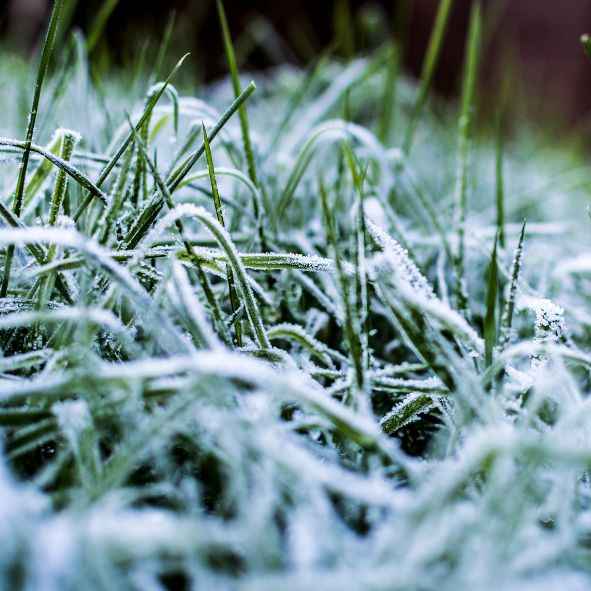
Covered with snow
It has been a snowy day. We need to buy a snowblower to clear up the driveway.
When the air is covered by the suspension of water droplets (mist), which restricts visibility to about 1 km or beyond
The misty weather hampered the soldiers' pursuit of the enemy.
When the air is covered by the suspension of water droplets (fog), which restricts visibility to less than 1 km. Fog is much denser than mist
Please drive slowly. It's so foggy.
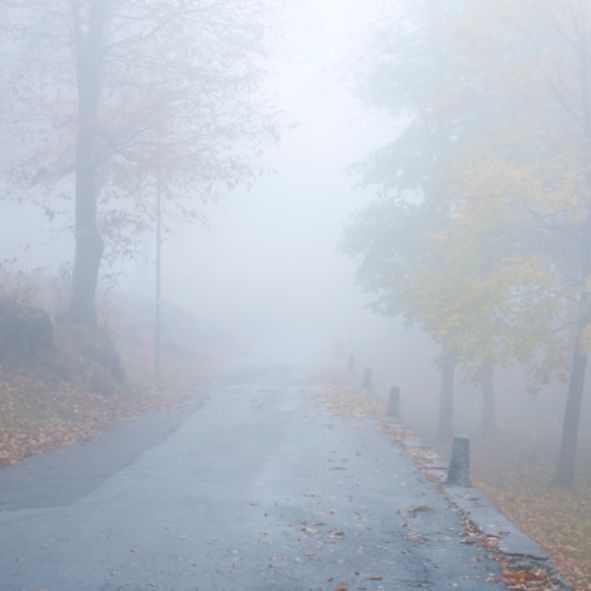
Covered with clouds
It's cloudy this morning, and it's probably gonna rain in the afternoon.
5.2 Summer
Full of sunlight
We shot the clip at the Nosy Iranja beach in Madagascar on a beautiful sunny day.
A moderate degree of heat at which the human body is still comfortable
People like to spend time outside when the weather is nice and warm.
A high degree of heat at which the human body starts to feel uncomfortable
Hot weather is prevalent in equatorial regions.
Extremely hot and uncomfortable
It's boiling in here. Don't you have an air conditioner?
Another word to describe extremely hot weather
It's scorching in here. Can we open the window?
Characterizes the weather when there is too much heat
It's always sweltering in summer here.
Uncomfortably hot and dry
I couldn't stand the torrid heat of summer in Granada.
Unpleasantly warm and humid
Some spores germinate more rapidly in muggy weather conditions.
5.3 Autumn
At a moderate temperature, neither too hot nor too cold
In October, the weather in Oakland is usually temperate.
Cold and causing discomfort
It's a bit chilly in here. I'm going to make a fire to keep us warm.
Pleasant, comfortable (British / American spelling)
I miss the Canary Islands. The beach is so beautiful, and the weather is cosy.
Cool, dry weather that is refreshing and invigorating
The air was crisp and cool as I stepped outside on the first day of autumn, and I could see my breath in the morning frost.
Characterised by strong, gusty winds
I had to hold onto my hat as I walked to work this morning because the blustery winds were so strong they nearly knocked me over.
Characterised by strong, direct sunlight
The weather was so bright and sunny today that I couldn't resist going for a hike in the mountains.
Linked with good visibility and a lack of clouds
I really enjoyed my flight yesterday. The weather was clear, and the views from the aeroplane window were breathtaking.
Refers to a cloudy sky with little or no direct sunlight visible
I had planned to spend the afternoon at the beach but changed my mind due to the overcast weather. The grey, cloudy sky and cooler temperatures made it less appealing to go outside.
5.4 Spring
Relatively warm and comfortable temperatures, usually between 10–21°C
The forecast for tomorrow calls for mild temperatures and mostly sunny skies, so it should be a great day for outdoor activities.
Clean, crisp, and energising; usually with cool air and a light breeze
I love waking up to fresh, dewy mornings in the spring when the air is filled with the sounds of birds chirping and the smell of flowers blooming.
Characterised by a light wind or gentle breeze
I sat on the porch swing, enjoying the cool evening air and the pleasant breeze as the sun set over the horizon.
When there is precipitation like rain, snow, sleet, or hail
The tears that I shed mixed with the raindrops on my cheeks, adding to the already dreary, wet atmosphere that evening.
Refers to high humidity, usually with mist or fog
The weather was damp, seeping into your bones and making you feel cold and alone. The sky was overcast, and the clouds were heavy with the threat of rain.
Sudden, temporary increases in wind speed
A truck driver died in a car accident yesterday. The accident happened when a strong gust of wind caught the truck by surprise, causing it to lose control and crash on the side of the road.
Windy, rainy, and possibly snowy or icy, usually with thunder and lightning
It was a stormy night, with strong winds and heavy rain battering against the windows.
Characterised by light rains that last for a short time
It's a sunny day today. It was mostly showery last week.
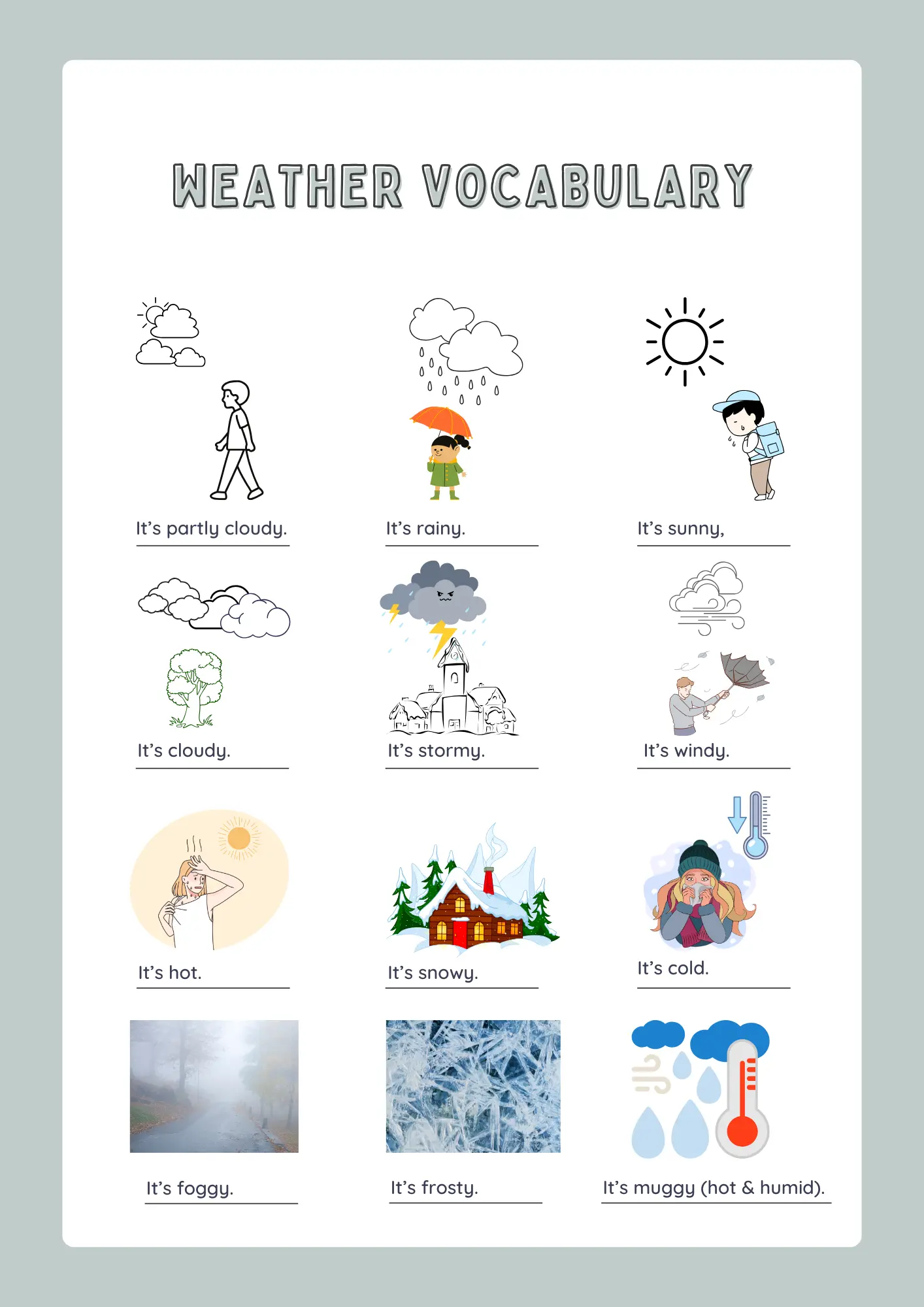
6. Weather flashcards
These flashcards contain words describing various weather conditions. Try to form simple sentences with these words. Click the arrow buttons to slide through the carousels. Feel free to print them. It is better to print them in landscape format.
